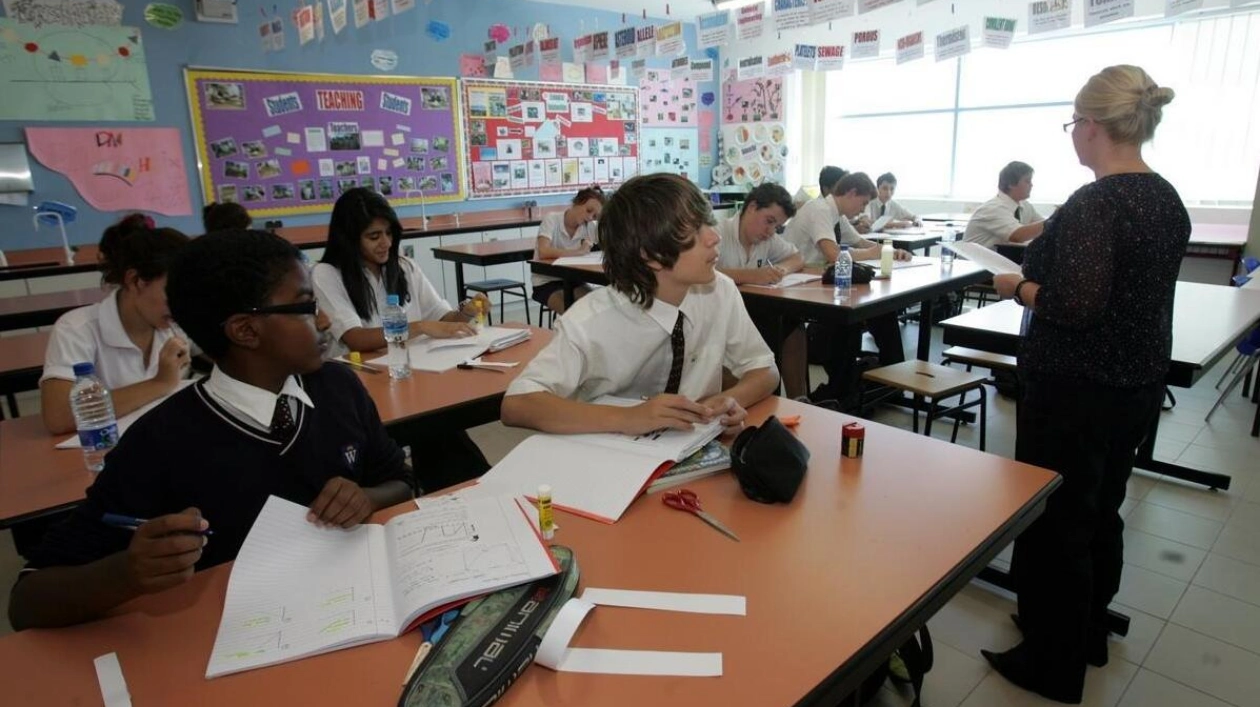Numerous students in the UAE are experiencing headaches and stomach problems upon their return to school after the extended summer break, according to school administrators and medical professionals. Educators believe these health issues may be connected to the shift from leisurely summer schedules to the more structured routines of school life. Following a two-month summer vacation, schools nationwide restarted classes on August 26. Dr. Mirrah Agha Kandil, the Group Senior Doctor at GEMS Education, noted an increase in cases of stomach aches and headaches in school clinics, likely due to the transition from relaxed summer habits to the disciplined routines of school, including early mornings and exposure to new environments during summer travels.
Schools enforce a strict 'stay home if unwell' policy to maintain a safe and healthy environment for students. Dr. Kandil explained that at the beginning of each academic year, school medical teams routinely inform parents about symptoms that require keeping children at home. To ensure a safe return to school, both students and staff are advised to be symptom-free for at least 24 hours without medication. Additionally, schools have implemented infection control measures such as trained nurses, isolation rooms, and thorough cleaning protocols to prevent and reduce the spread of illnesses.
As the flu season approaches, schools are actively promoting healthy habits, encouraging vaccinations, and conducting awareness sessions. Principals at Indian curriculum schools also highlighted that children are more susceptible to common illnesses when they first return to classrooms, and changes in routine can affect their well-being. Rashmi Nandkeolyar, Principal and Director of DPS Dubai, mentioned observing a few students with mild illnesses post-summer break, likely due to travel and exposure to different climates or environments. Common complaints include stomach pain, headaches, minor injuries, and sports-related accidents.
Doctors also pointed out that respiratory infections and gastrointestinal issues are prevalent during the back-to-school period, but awareness and proactive measures can help mitigate their impact. Dr. Hanan Elmorshedi, a Specialist in Pediatrics at Burjeel Day Surgery Center, Al Dhafra, noted that allergies are common during this season, and some children are experiencing sleep difficulties and increased anxiety, likely due to the transition back to school. Medical professionals recommend parents help their children establish a stable routine, emphasizing sufficient sleep, a balanced diet, and regular physical activity to support their health and reinforce hygiene habits.
Healthcare experts underscored the importance of children eating freshly prepared, home-cooked food to reduce the risk of gastrointestinal issues, which often increase after travel. Dr. Mohammed Asif, a Specialist Pediatrician at Zulekha Hospital Sharjah, frequently encounters children with symptoms like fever, vomiting, abdominal pain, and diarrhea in outpatient and emergency settings. He advises parents to avoid giving their children outside food and to emphasize good sanitary practices, including regular handwashing.






